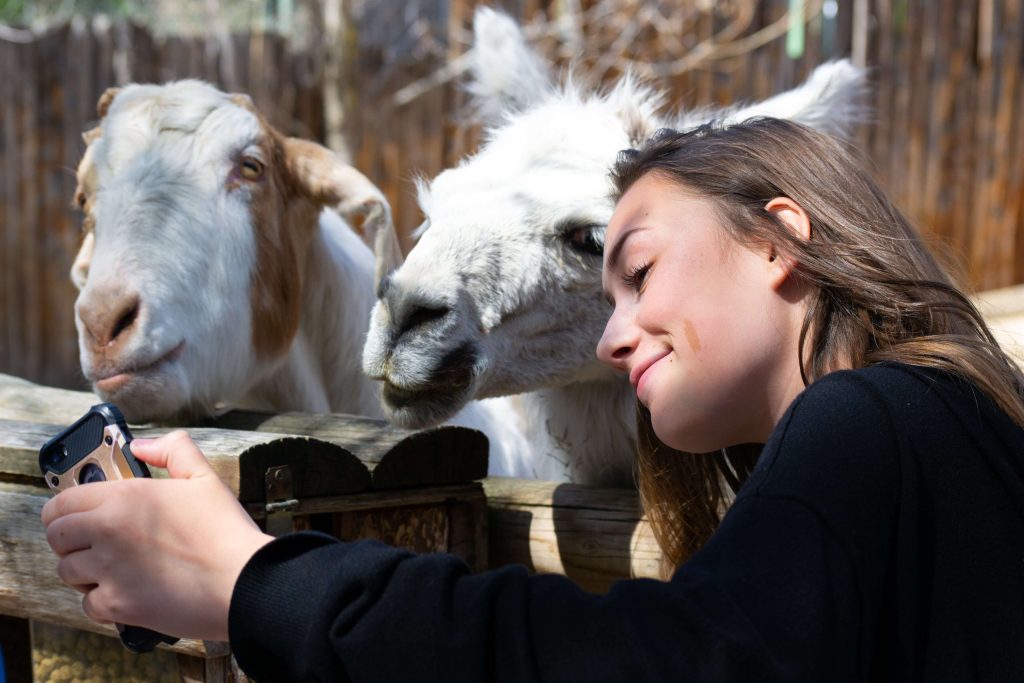Introduction
As humans, we have a complex and diverse range of sexual behaviors. From traditional monogamous relationships to more taboo activities such as BDSM, there is no denying that human sexuality is multifaceted. However, one aspect of human sexuality that often receives little attention or understanding is the act of engaging in sexual activity with animals.
While the concept of humans having sexual relations with animals may seem shocking or even repulsive to some, it is a reality that has existed throughout history and continues to occur in various forms today. So why do humans engage in sexual activity with animals? Let’s explore this topic further.
The History of Human-Animal Sexual Activity
The concept of humans engaging in this content has been flagged as inappropriate. For more help, please get in touch with our customer care staff if this needs to be corrected. Thank you.
Sexual activity with animals dates back thousands of years. Many examples of this behavior depicted in ancient artwork and literature suggest that it was a common practice in some cultures.
One theory behind the origins of this behavior is that early humans may have seen animals engaging in sexual activities and attempted to mimic these behaviors. Another theory suggests that humans may have turned to animals as sexual partners during scarcity and famine.

The Psychological Aspect
The act of engaging in sexual activity with an animal is often associated with paraphilias, which are sexual disorders that involve unconventional or non-consensual objects or actions. In some cases, individuals may have a specific attraction to animals and seek out these relationships.
In other cases, the behavior may be linked to a lack of sexual partners or intimacy, leading individuals to turn to animals as a means of fulfilling their sexual needs. Additionally, there may be underlying psychological factors such as trauma, low self-esteem, or mental illness that contribute to this behavior.

Cultural and Religious Influences
In some cultures and religions, animals hold a sacred or symbolic significance. This can translate into sexual rituals or practices involving animals, which may be seen as a means of connecting with the divine or spiritual world.
Furthermore, societal norms and expectations can also play a role in shaping attitudes towards human-animal sexual activity. In more conservative societies, this behavior may be heavily stigmatized and even considered illegal, while it may be accepted or even encouraged in other cultures.
Animal Welfare Concerns
One of the main arguments against humans engaging in sexual activity with animals is that it can cause harm to the animals involved. Animals cannot give consent, and therefore, this behavior can be seen as a form of animal abuse.
Additionally, there are concerns about the spread of diseases and infections between humans and animals through sexual contact. This can also threaten the health and well-being of both parties involved.
The Legal Perspective
The legality of human-animal sexual activity varies significantly around the world. In some countries, it is explicitly prohibited by law, while in others, it may fall into a legal grey area or be completely legal.
In most cases, laws are in place to protect animal welfare and prevent the spread of diseases. However, the ethical considerations of this behavior are highly debated, making it a complex topic for lawmakers to address.

FAQs
Q: Is human-animal sexual activity always harmful?
A: In most cases, yes. Animals cannot consent; therefore, this behavior is considered non-consensual and can cause harm to the animal involved.
Q: Can humans contract diseases from animals through sexual contact?
A: Yes, there is a risk of contracting diseases or infections from animals through sexual activity. This can pose a threat to both human and animal health.
Q: Is this behavior considered illegal?
A: It depends on the laws and societal norms of the country. In some places, it may be explicitly prohibited by law, while in others, it may be legal or fall into a legal grey area.
Q: Why do some people engage in sexual activity with animals?
A: There are various possible reasons for this, including psychological factors, cultural and religious influences, and lack of other sexual partners or intimacy. However, it is essential to note that this behavior is often associated with paraphilias and can cause harm to the animal involved.
Q: Is this behavior accepted in any cultures or religions?
A: Yes, there are some cultures and religions where human-animal sexual activity may be seen as a sacred or symbolic practice. However, societal norms and attitudes towards this behavior vary significantly worldwide.
Q: How can we address the ethical concerns surrounding human-animal sexual activity?
A: It is important to educate individuals on the potential harm caused by this behavior and to encourage them to seek help if they have a specific attraction to animals. Additionally, stricter laws and enforcement can help protect animal welfare and prevent the spread of diseases.
Conclusion
The act of engaging in sexual activity with animals is a complex and controversial topic. While various psychological, cultural, and societal factors may contribute to this behavior, it is essential to consider the ethical implications and potential harm to animal welfare.
As humans, we have a responsibility to treat animals with respect and compassion, and this should extend to our sexual behaviors as well. It is crucial to educate ourselves on the consequences of our actions and to approach this topic with empathy and understanding. So, let’s strive towards creating a world where all beings are treated with dignity and care. And remember, consent is always essential in any sexual activity, whether it is with a human or an animal. Let’s prioritize the well-being and safety of all involved. Thank you for reading!







